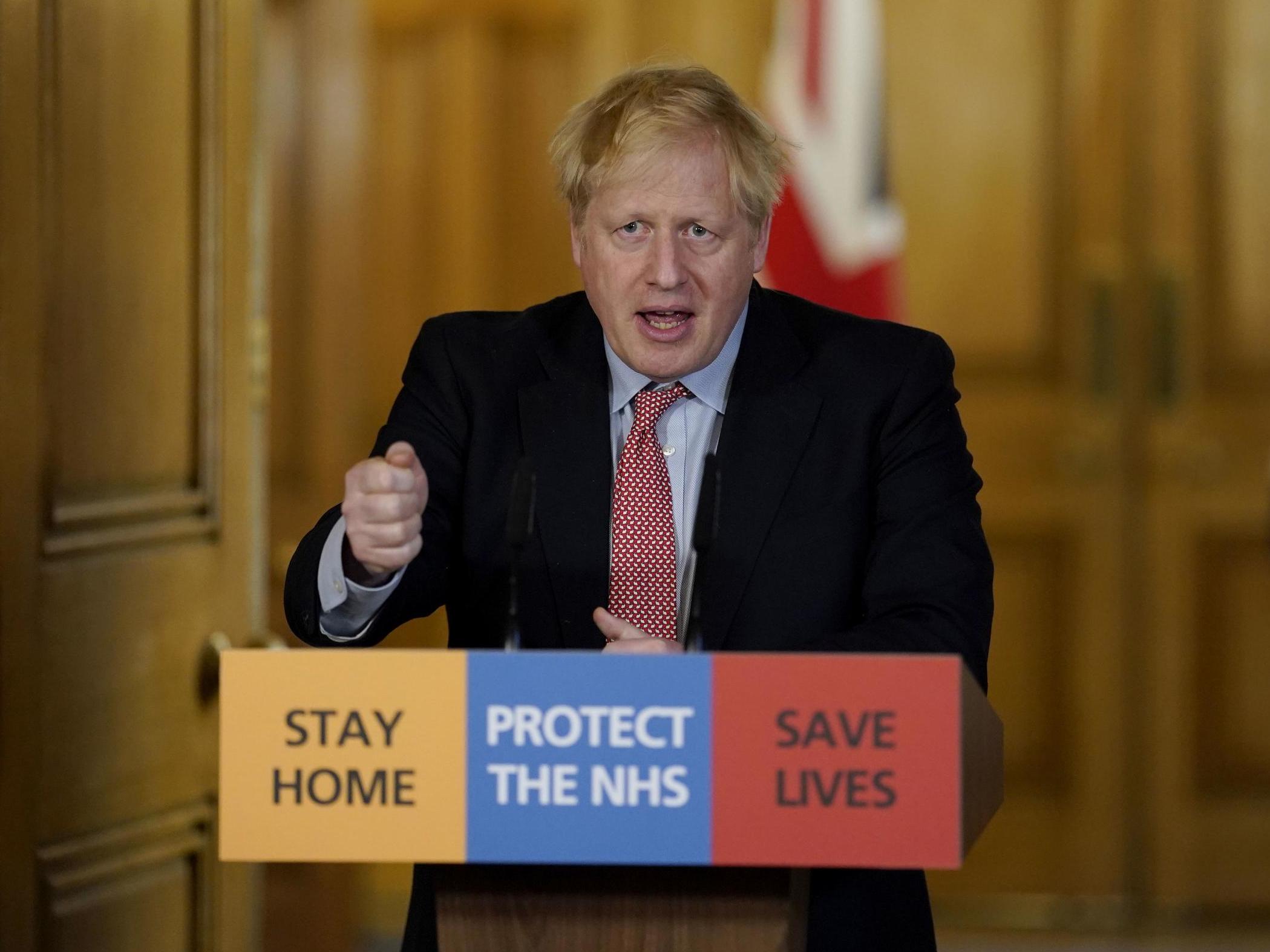
Boris Johnson’s attempt to model himself on Winston Churchill seemed absurd, until now. In America, most presidential candidates write books about themselves; Johnson wrote a book called The Churchill Factor. It was mocked at the time, including by me, for the shamelessness with which he looted the warehouse of national myth.
But here he is, breaking opinion poll records that go back to the war. A new poll out today from Number Cruncher Politics finds that 72 per cent of people are satisfied with the government’s handling of coronavirus, with 25 per cent dissatisfied.
By coincidence, I have recently been looking at the earliest opinion polls carried out in Britain, by Gallup, which began in 1937. The proportions of those approving of Churchill’s handling of the war were similar. For example, in January 1944, 69 per cent said they were “satisfied with the government’s conduct of the war”, with 16 per cent dissatisfied (the rest had “no opinion”).
Download the new Independent Premium app
Sharing the full story, not just the headlines
Churchill’s personal popularity was higher than Johnson’s now – in June 1943 touching 93 per cent approval, as against 72 per cent for the prime minister today. But the war leader was unable to convert that into support for a Conservative government after VE day. Indeed, during the war people told Gallup they intended to vote Labour when the election came, but few believed that such surveys, in their infancy, were accurate.
Today’s poll, on the other hand, puts Conservative voting intention, at 54 per cent, at its highest ever level while the party has been in government. What a time for Keir Starmer to take over as leader of the opposition next Saturday.
These may seem almost frivolous concerns as the nation braces itself for an unknown death toll and possibly years of economic hardship to follow. But public opinion matters now, because leaders can achieve so much more if they have the support of their people.
At which point we are bound to look across the Atlantic at what is happening in the US. While Johnson prefers to compare himself to Churchill, he has often been compared by others to Donald Trump, a fellow “national populist”.
Yet how different their responses to the pandemic have been. As Andrew Sullivan wrote, Trump responded to the outbreak in Wuhan early, in January, by banning travel to and from China for Chinese citizens. He could have capitalised on his image as the defender of borders, protector against foreign threats, and fighter of a trade war against China.
Instead, he reversed his position, spending most of February saying the epidemic “will go away” and insisting on business as usual. Sullivan said: “He suddenly panicked that an epidemic could hurt the stock market and slow the economy in an election year.”
Now Trump is trapped by the reality of a death toll in the US that is accelerating towards China’s total, and still holding photocalls in the White House with members of his cabinet crowded behind him.
He has been rewarded by a tepid rallying of his base in public opinion, rising from 42 per cent approval to 46 per cent in the past two weeks.
Johnson, on the other hand, resisted populist anti-foreigner measures in the early days of the outbreak, but acted quickly when the scientific advice changed. He has been criticised for being too slow to respond, but Lawrence Freedman, professor of war studies at King’s College London, has performed a public service by looking at the evidence.
Bringing his experience as a member of the Chilcot inquiry panel to bear, he has looked at the minutes of the New and Emerging Respiratory Virus Threats Advisory Group, the scientists advising the government. He said the scale of the threat was not obvious to the group in January and February, and concluded: “Looking at its deliberations provides a reminder of how the seriousness of this pandemic only gradually came to be appreciated and how the national effort was hampered by uncertainty about the information from China.”
It seems that most of the British public understand this, even if they do not know the details.
Of course it is too early for definitive judgements. We cannot know what mistakes Johnson will yet make, or what greatness he may call forth. But it is better that he starts with the British people behind him than not.



